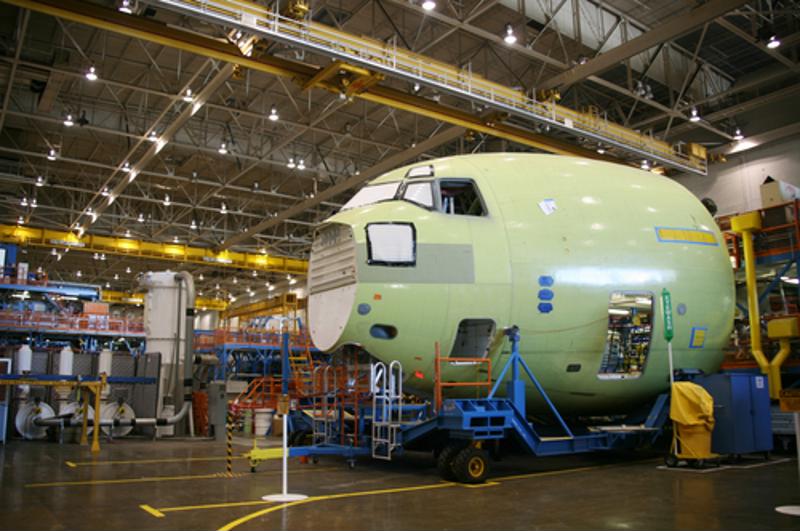On January 1, 2015, Canada-Korea Free Trade Agreement (CKFTA) went into effect – Canada’s first free-trade agreement in the Asian-Pacific region. The deal is expected to provide Canadian businesses with new access to the fourth-largest economy in Asia and boost exports to South Korea by 32 percent.
The agreement was signed back in September, and will provide Canada with a path to the wider Asian-Pacific market through South Korea. The South Asian country’s advanced economy will offer Canadian businesses access to regional supply chains, a potential boon for shippers interested in the markets South Korea provides access to.
“The South Asian country’s advanced economy will offer Canadian businesses access to regional supply chains.”
Canada has been rather busy as of late making trade agreements with countries all over the globe in order to increase business opportunities. In less than seven years the country has completed free-trade agreements with nine countries, and it isn’t stopping there. Canada is currently in negotiations with 30 more countries for free-trade deals. Recently the decision has been made to make a push toward Asia, and the agreement with South Korea is a sign that efforts are being made to further that initiative. The new deal with South Korea is expected to boost the Canadian economy by $1.7 billion.
Changes that the free-trade agreement between Canada and South Korea will bring
It’s not as though the two nations hadn’t been actively trading before the agreement though. In fact, in 2013 two-way merchandise trade between Canada and South Korea came close to $11 billion, making the Asian-Pacific country Canada’s third-largest trade partner in Asia. The agreement will cover trade in goods and services, tariff barriers, investment, government procurement, environment and labor cooperation in addition to other transactions.
“The Canada-Korea Free Trade Agreement will create thousands of new jobs in Canada and provide Canadian businesses and workers with a gateway to Asia,” Ed Fast, minister of international trade, explained in a statement. “With this landmark agreement now in force, our government is committed to supporting our companies as they seek to boost their exports to South Korea and throughout Asia. We will continue to focus on laying the foundations for jobs, growth and long-term prosperity, to the benefit of hard-working Canadians and their families.”
In February Fast will make the voyage to South Korea on what has been described as a “trade mission.” The mission led by Fast will provide assistance to Canadian businesses in search of investments in the Asian-Pacific area. The government will also offer workshops to help businesses take advantage of the benefits that the CKFTA can offer. The agreement, which moved from signature to entry to force in less than three months, is the fastest implementation timetable ever undertaken for a Canadian free-trade agreement.
 The aerospace industry is just one set to benefit from Canada’s free-trade agreement with South Korea.
The aerospace industry is just one set to benefit from Canada’s free-trade agreement with South Korea.The deal between Canada and South Korea will benefit a number of industries. For example, the Aerospace Industries Association of Canada (AIAC) released a press statement explaining that the agreement will provide the aerospace industry in Canada with what it described as “a level playing field.” The aerospace sector, heavily focused on exports, will see current tariffs of up to 8 percent on aerospace goods such as “turbo propellers, turbo jet and propeller parts and ground-flying training equipment” eliminated. Korea had recently signed agreements with the European Union and the U.S., which resulted in Canadian aerospace exports to the country to drop by 80 percent from $180.3 million in 2011 to $35 million in 2012.
The Asian-Pacific region is set to be a significant force in the aerospace industry in the coming years. Of the $4.5 trillion in projected new work forecasted over the next 20 years, 37 percent of that growth is set to be located in that area of the world.
Farmers are also set to benefit from the trade agreement between Canada and South Korea. Tariff cuts will see the shipping rates for farmers drop enough for some significant benefits. For example, the CKFTA will eliminate the 5 percent tariff applied to canola seeds. Tariffs on refined canola oil and crude oil tariffs will also be removed, in three years and seven years respectively.
Canola farmers and propeller manufacturers are just some of those who will benefit from the CKFTA. Shippers in the aerospace, agricultural and many other industries are set to enjoy a new era of simpler trade with South Korea and new access to the Asian-Pacific region with the new deal.
“Under the agreement, those export numbers could grow substantially,” Rick White, CEO of the Canadian Canola Growers Association (CCGA), said in a press statement. “It’s also encouraging to see Canada’s first free trade agreement in the Asia-Pacific region, with other trade files including the Trans-Pacific Partnership and the Canada-Japan Economic Partnership Agreement still under negotiation. These agreements will improve market access even further for our farmers.”